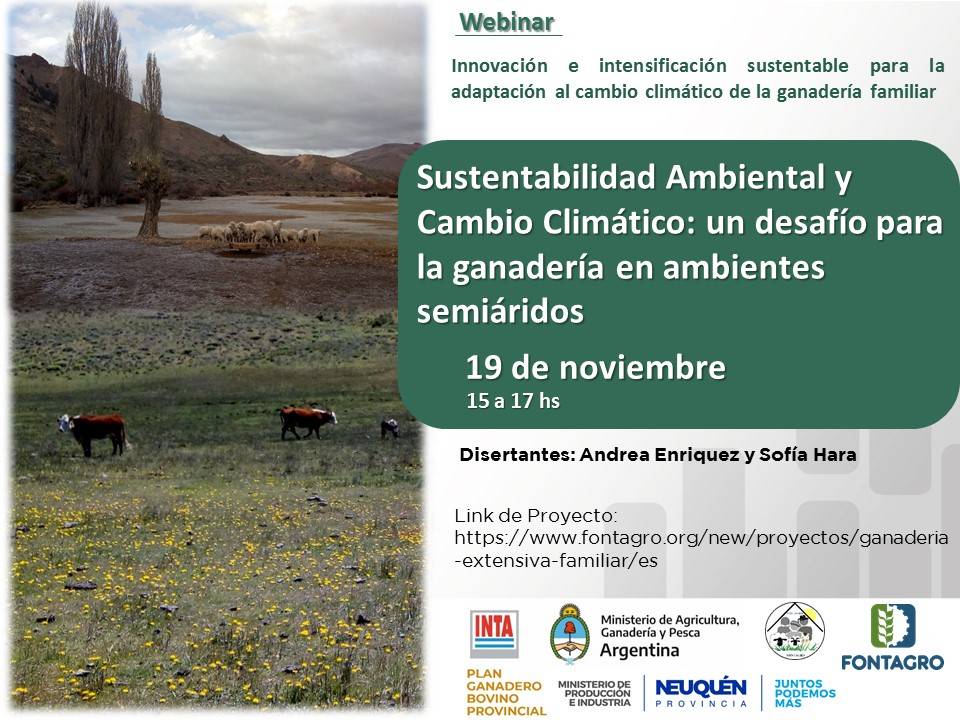Webinar given by Andrea Enriquez and Sofia Hara on Environmental sustainability is seen as the way to achieve a harmonious social development with the environment.

Environmental sustainability is seen as the way to achieve social development in harmony with the environment. To this end, it is necessary to evaluate the way in which we make use of natural resources and the impacts on the environment and society as a whole, both locally and globally. A particular challenge arises in the pastoral lands of semi-arid regions where livestock activity is a valuable source of labor, food and fiber for the local community. There, climate is a factor that naturally conditions livestock activity and where other anthropogenic factors such as climate change and overgrazing are pushing in the same direction towards soil degradation. The interaction between natural and anthropic factors makes the use of natural resources more complex, which encourages us to redouble our efforts towards environmentally, productively and socially sustainable livestock farming. In this presentation, in addition to addressing some general concepts, the speakers focus on the contribution that extensive cattle raising in Northern Patagonia would have on climate change. They conclude that a well-managed pasture, which maintains soil carbon stocks and the productivity of its grasslands, has the potential to counteract the adverse effects attributed to livestock production due to the emission of certain greenhouse gases. Finally, and from the perspective of "nature-based solutions", some possible alternatives for achieving environmental sustainability of Patagonian grasslands under livestock management in a context of climate change are presented. Andrea Enriquez has a degree in Biological Sciences and a PhD in Biology. She is a researcher at CONICET and works in the Natural Resources Area, in the Soils and Waters group of INTA EEA Bariloche - IFAB. Her lines of research include General Ecology and Soil Sciences, but specifically she studies the cycles of elements such as N and C, and GHG emissions (biogeochemistry) of grassland and wetland environments in arid and semi-arid zones, analyzing the impact that global change may have on these ecosystems. Sofía Hara is a veterinarian and a fellow at the Animal Production Area of INTA Bariloche-IFAB. She is currently pursuing her PhD in Agricultural Sciences (UNMdP). Her thesis deals with the intensification and sustainability of livestock systems in Northern Patagonia and emphasizes the search for synergies and compromises between productive, environmental and social aspects of these systems in the context of climate change.




